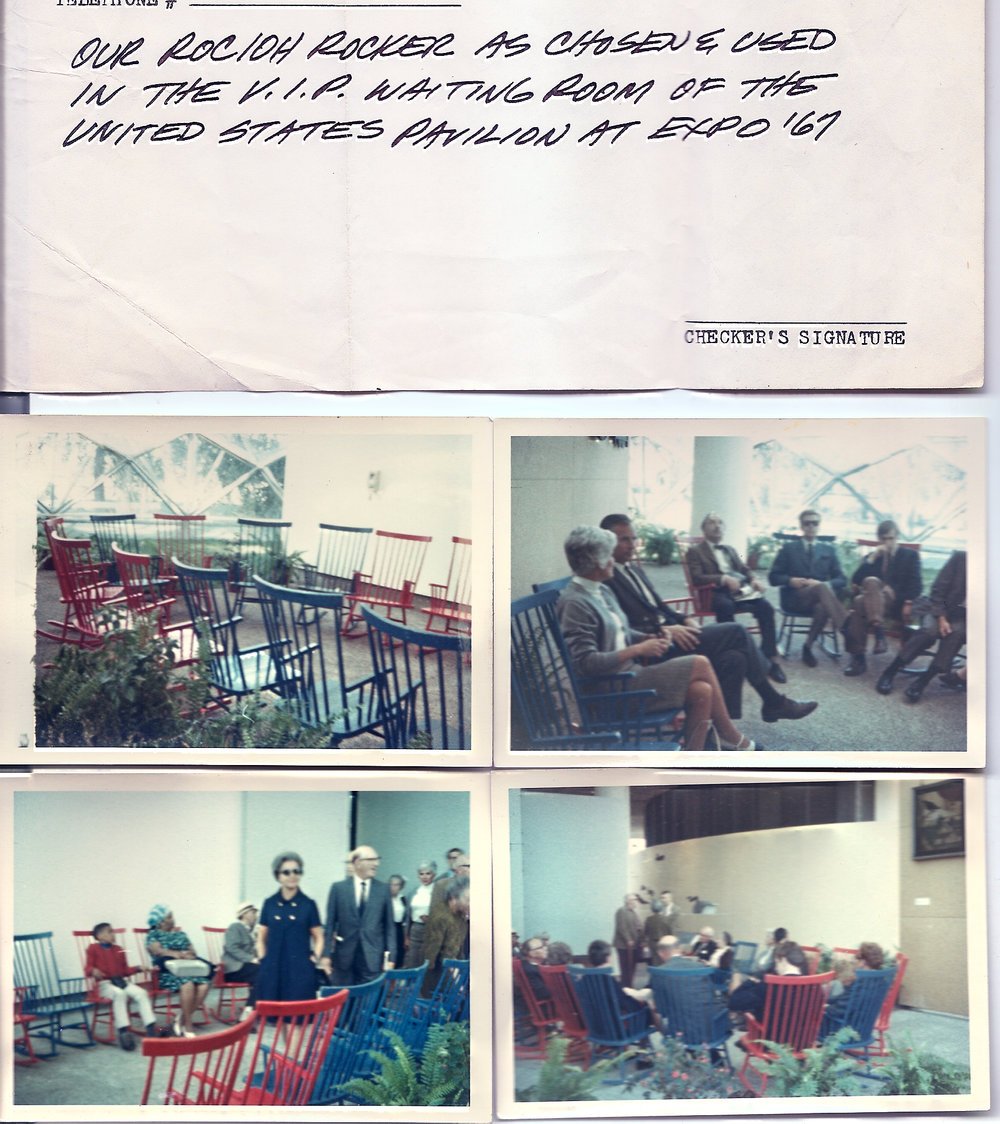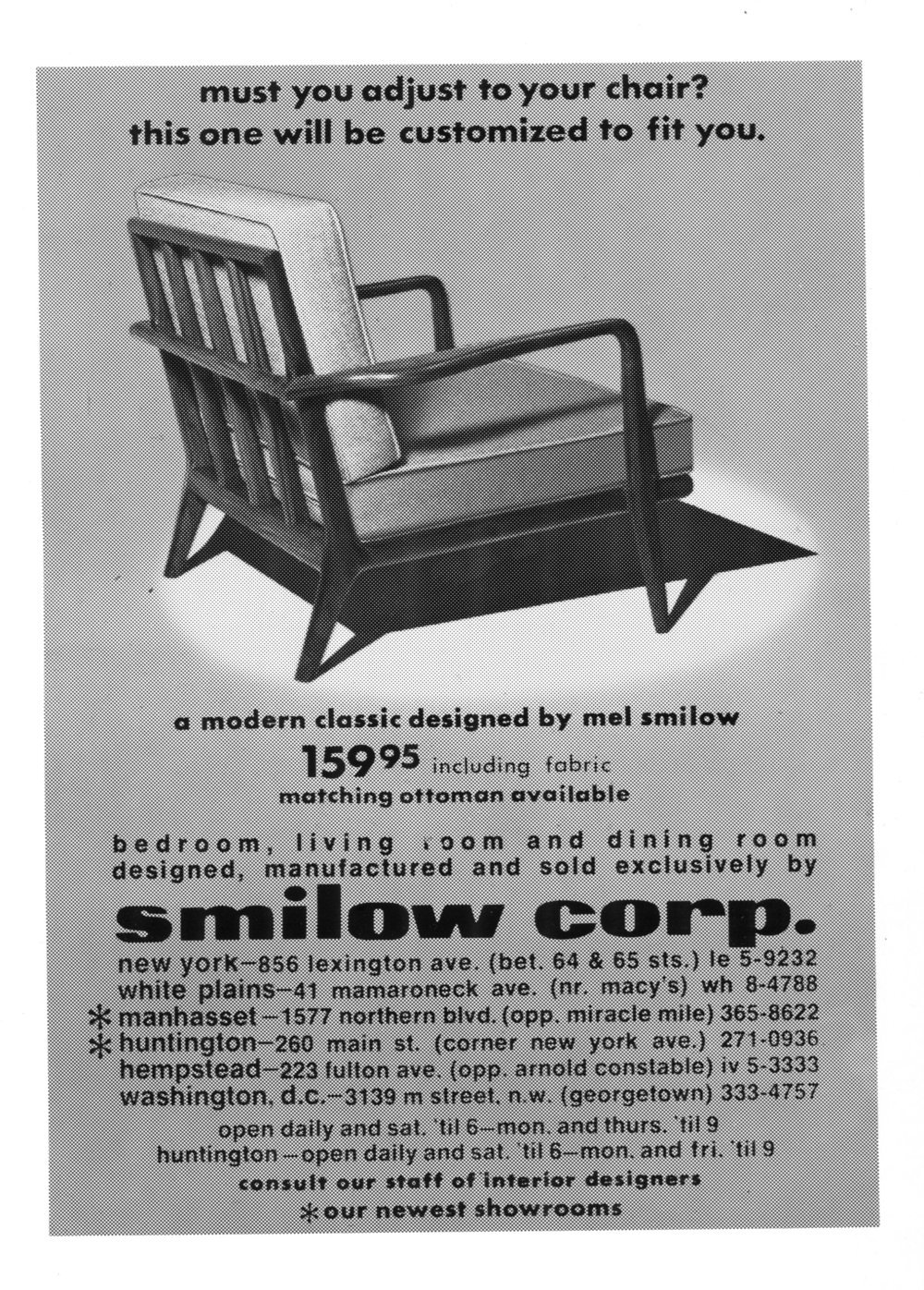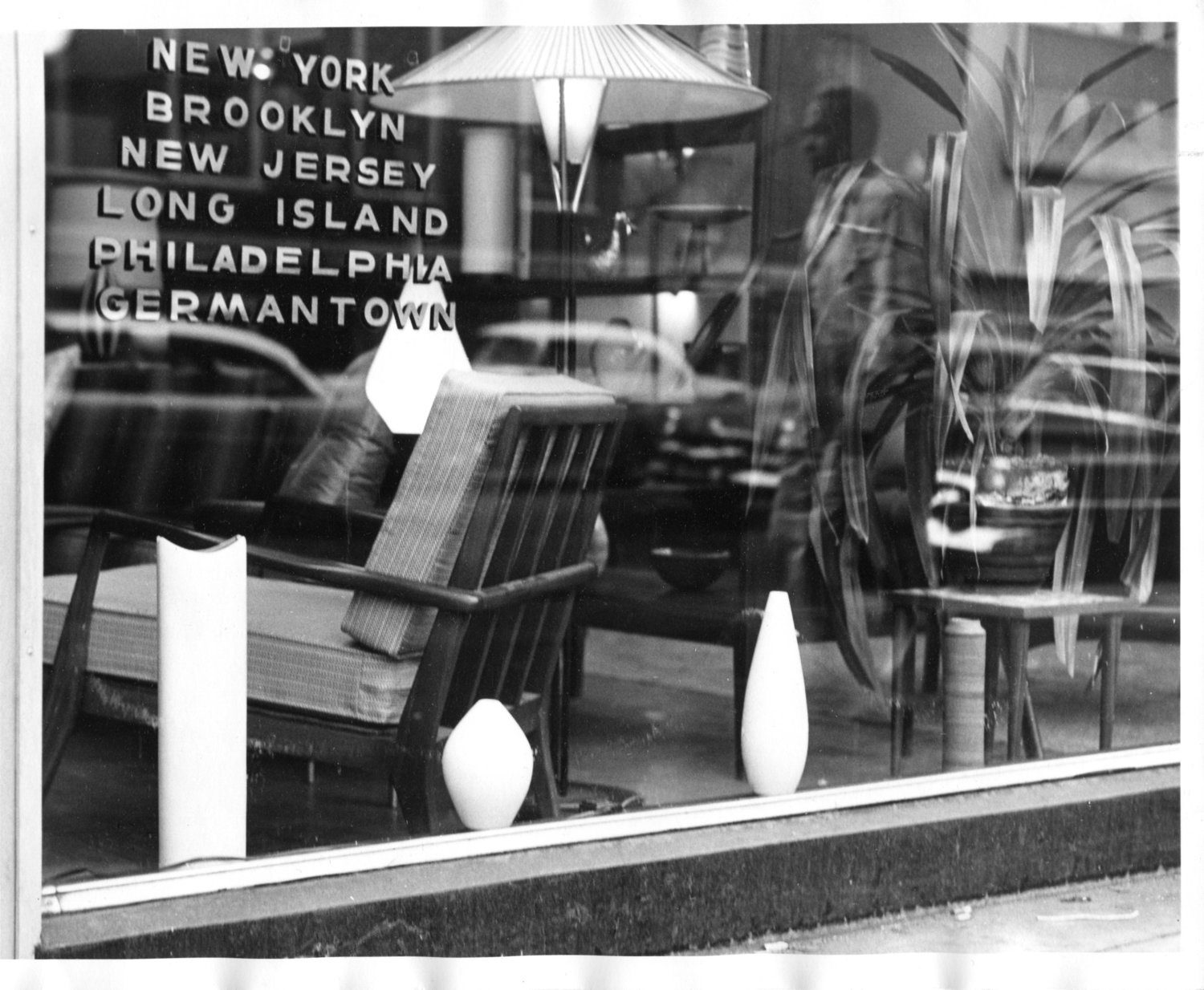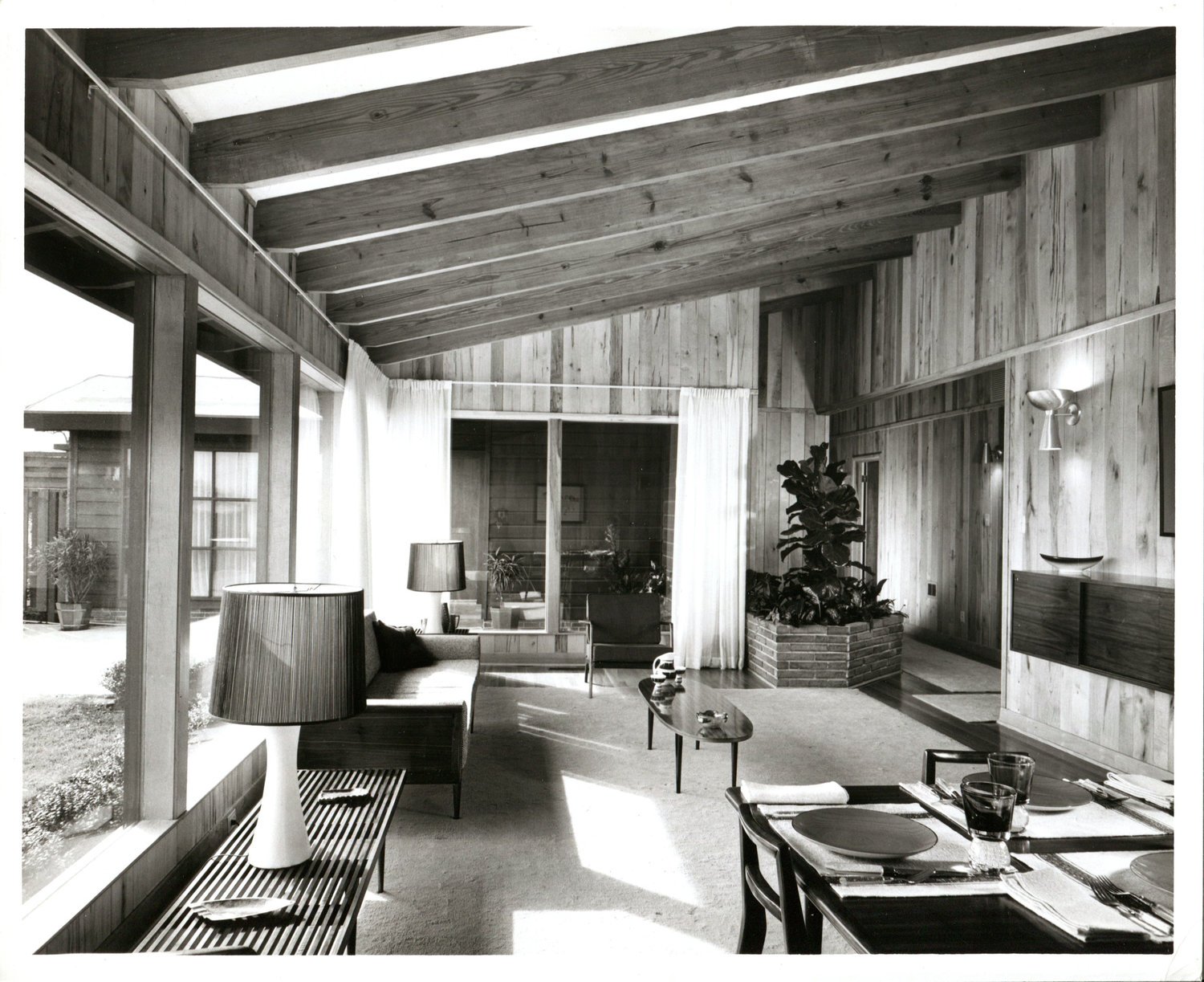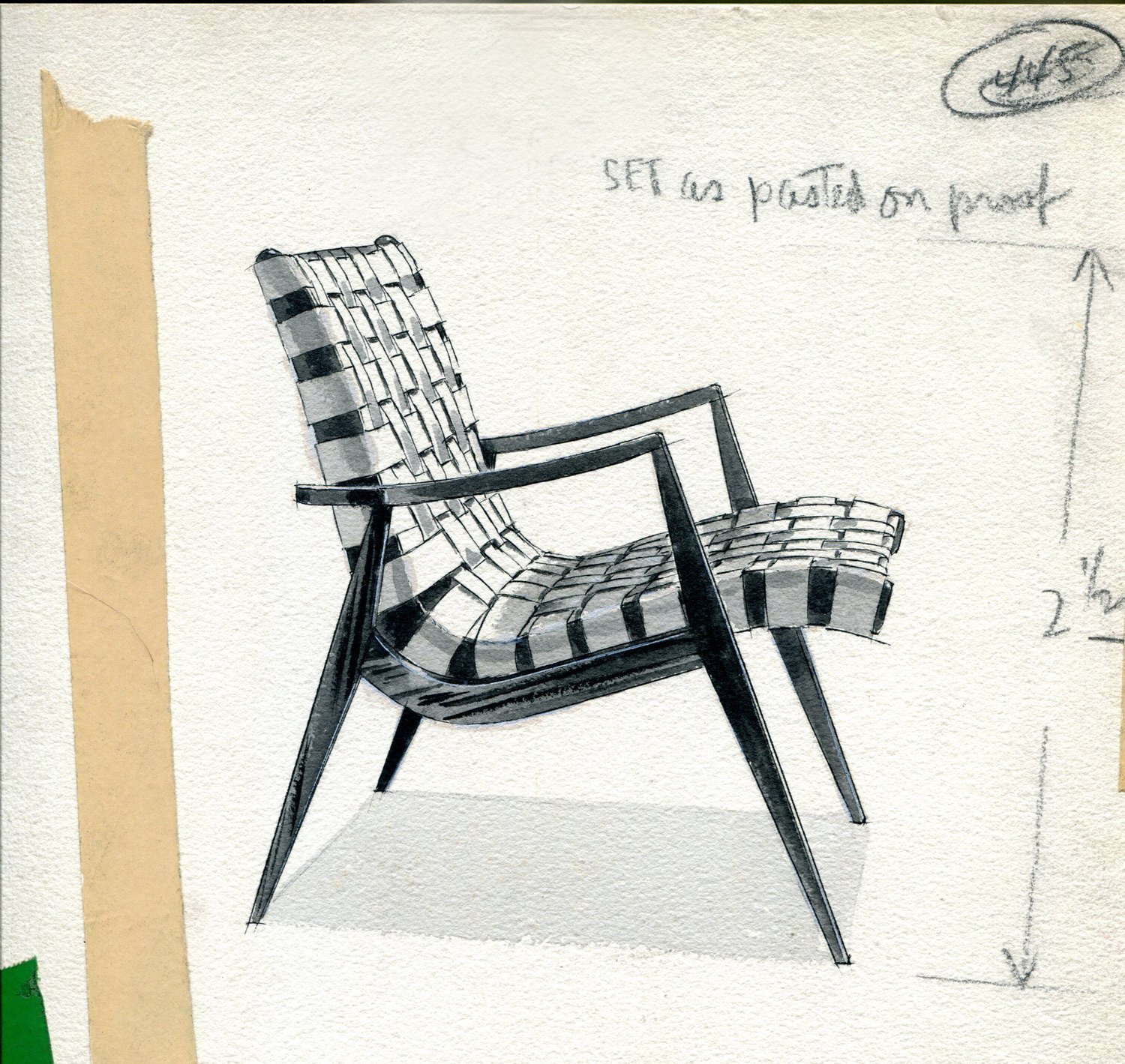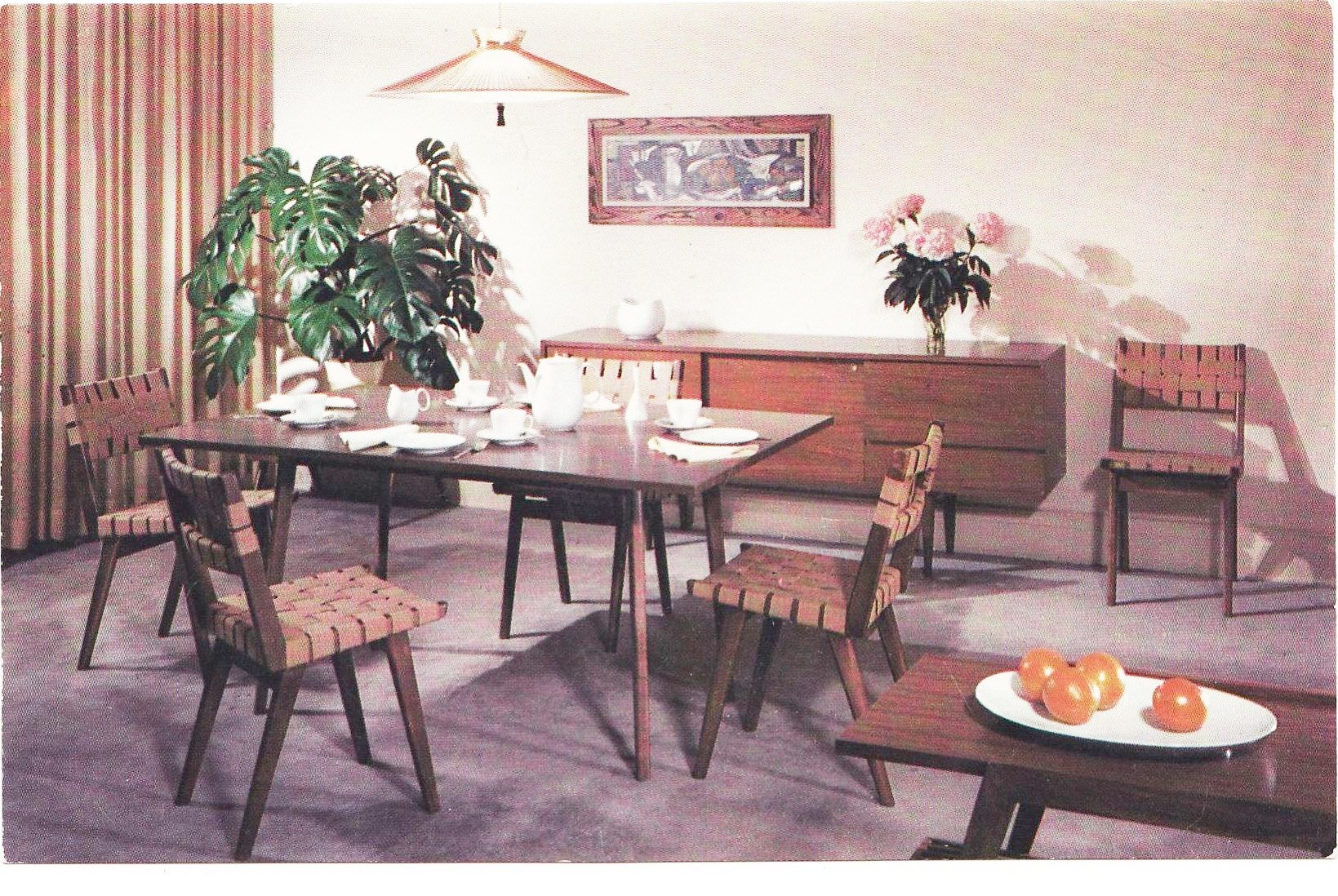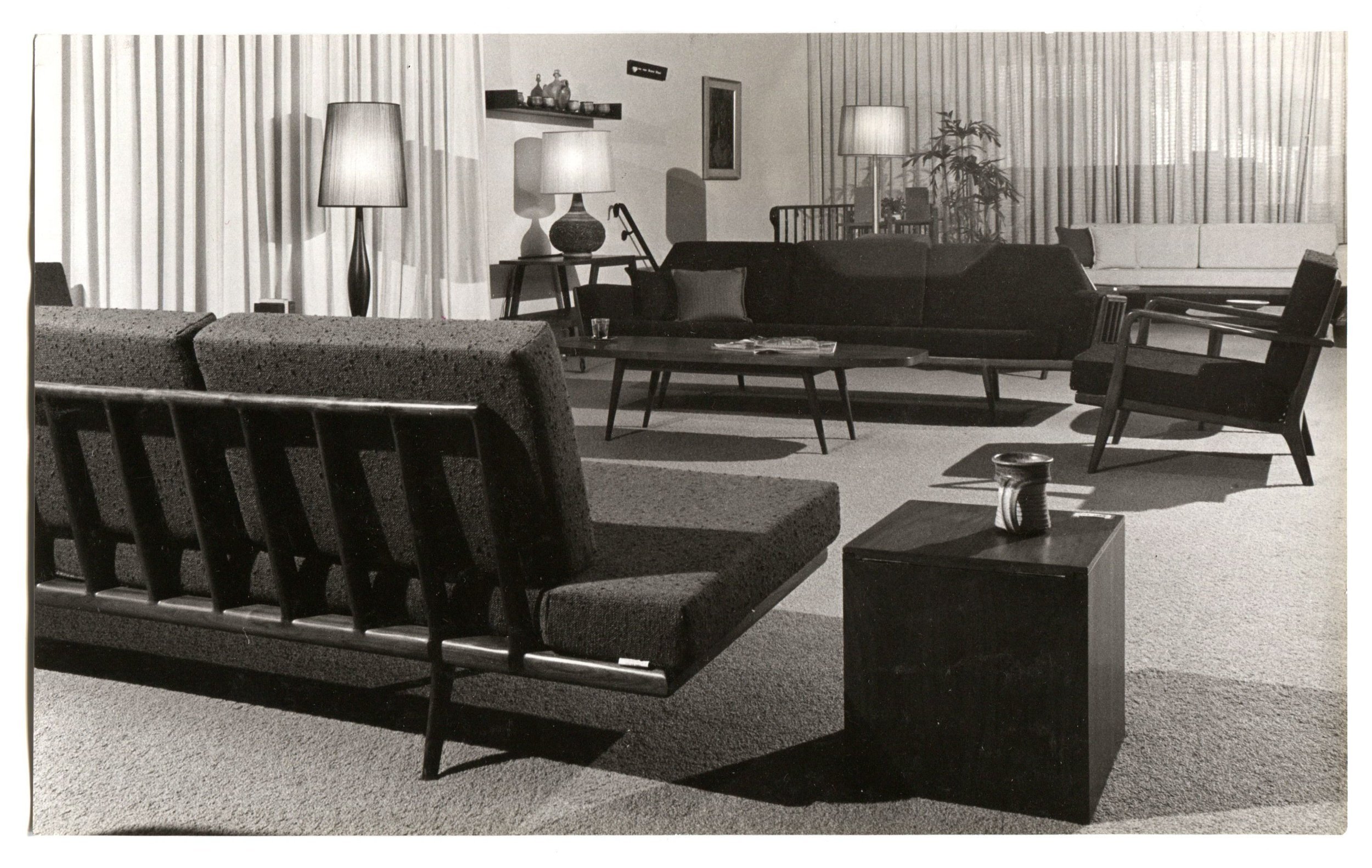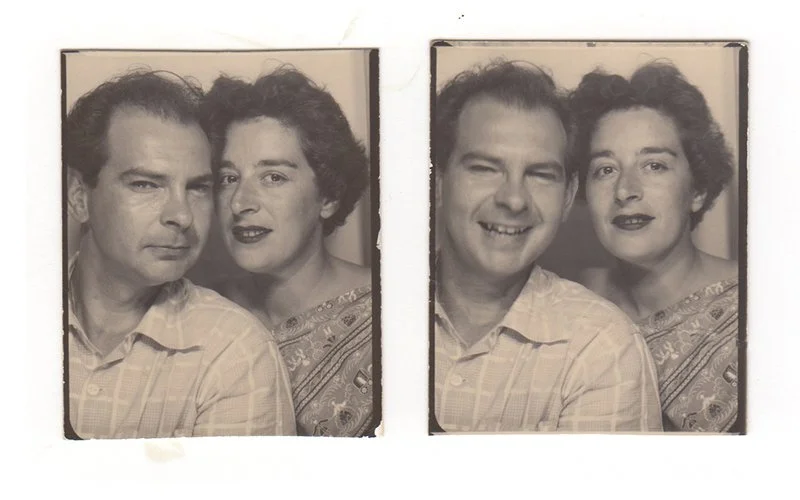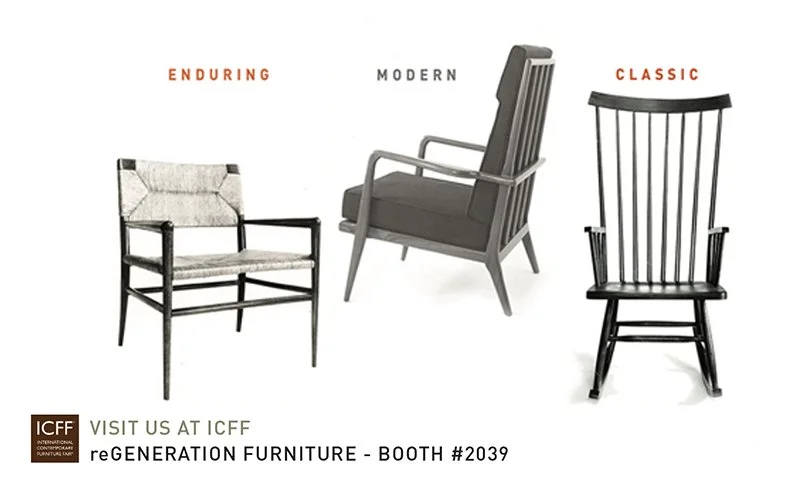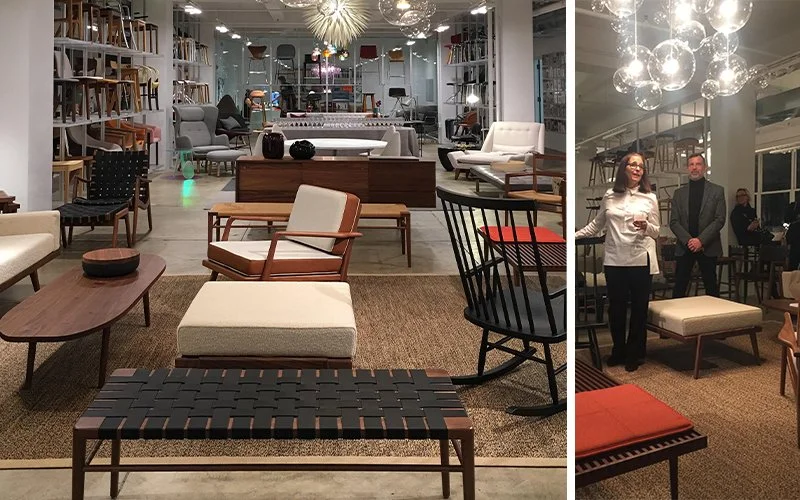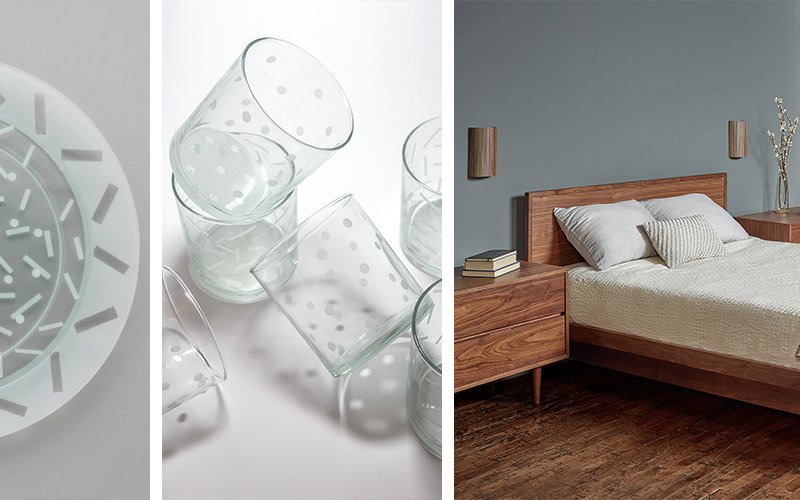Smilow Design is a third generation family-owned design company with a commitment to simplicity, functionality, and natural materials. Mel Smilow (1922–2002) designed and retailed modern furnishings through his six independently owned stores from 1949 through the late 1970’s. A champion of American-made, affordable, finely crafted, modern design, his work has been recognized and coveted by collectors and well appreciated by his loyal customers for over 50 years. Judy Smilow (1958-2018) spent many years developing her expertise as a product designer. Her glass designs have been included in numerous publications, museum collections, and exhibitions.
We are proud to be members of the Sustainable Furnishings Council and beOriginal, doing our part to support an environmentally sound and ethical future.
Smilow® Furniture and Smilow® Lighting are customizable and appropriate for residential, hospitality, contract, institutional and retail applications. Smilow® Glass is available for retail or wholesale. Our designs can be ordered on a custom basis or in quantity, and can be shipped to any location. We are proud to manufacture Furniture, Lighting, and Glass in America using responsibly sourced and produced lumber and partially recycled glass.
Click here for Warranty and Care Information
History
1922
March 5th 1922, Mel Smilow was born in the Bronx, New York City, New York
1939 - 1945
Smilow Enrolled at the Pratt Institute but shortly withdraws following the death of his father. He begun selling wholesale furniture to retail stores in New York and Pennsylvania at the age of 17.
Smilow enlisted in the army and after basic training was shipped to Europe.
After an honorable discharge from the army, Smilow returned to his job selling furniture.
1949
in partnership with a colleague, Morton Thielle, he founded Smilow-Thielle, a manufacturer and retailer of modern furnishings
1953
Smilow married Edith Kern, whom he had met at a furniture trade show where they were both exhibiting
1950’s
As the Smilow-Thielle furnishings became increasingly popular, the number of their retail outlets increased: at its height, there were five Smilow-Thielle stores around the metropolitan New York area and one in Washington, DC
1955
The Pratt Institute included an ottoman designed by Smilow in its 1955 exhibit of well-designed furniture available for under $25.00
1956
this review of Mel’s work appeared in The New Yorker
1956 & 1958
The Smilows had two daughters, Pamela, born in 1956, and Judy, born in 1958, both of whom have become artists and designers in their own right.
1963
Smilow and his family moved to Pleasantville, New York, in 1963 to live in Frank Lloyd Wright's planned community, Usonia Homes
1967
Smilow's Wooden Rocker, designed in 1960, was chosen as seating in the United States Pavilion, designed by Buckminster Fuller at Expo 67 in Montreal
1969
Smilow and Thielle dissolved their partnership. Smilow retained sole ownership of both the company, operating as Smilow, Corp. and later as Contemporary Classics, as well as his flagship store at Lexington Avenue and 64th Street
1970’s
During the 1970s, he developed a growing interest in Japanese principles of art, specifically the concept of Shibui, the Japanese design philosophy. Eventually, he would create a Shibui collection of furnishings, which featured shoji screens, and finely detailed joinery on a simple floating platform bed, and accompanying low cabinets.
1975
The Woven Rush Lounge Chair was featured on the cover of New York Times Magazine
1981
by 1981 Smilow retired and closed the business, but continued to offer custom furniture, cushions, and covers to his loyal customers while he pursued his passion for sculpting, painting, and printmaking.
2002
On December 26, 2002, at the age of 81, Mel Smilow died after suffering from Alzheimer's disease.
2012
Determined to reestablish and reintroduce Mel Smilow’s designs to the world, Mel’s daughter Judy began a months-long process of prototyping a selection of pieces and sold the first of many WAC 33s to an architect who was working on a model apartment.
2013
In May 2013 a collection of 10 Smilow Furniture pieces were reintroduced at ICFF in partnership with contemporary and vintage showroom ReGeneration. The selection included classic pieces from the Woven Rush and Railback collection.
2014
In January 2014 the reissued Woven Leather Lounge, Woven Leather Ottoman and Classic Pedestal Extension Table were added to the Smilow Design collection. Showroom Suite NY had picked up the entire line.
2015
Smilow Design’s furniture line was picked up by London-based Mint Shop. In May Smilow Design teamed up with Makelike and Cedar & Moss for ICFF.
2016
The reissued Slatted Stacking Tables joined the Smilow Design collection at ICFF alongside Robert Long Lighting—another reissued brand from the mid-century. Along with the Stacking Tables, The Woven Rush Daybed joined the modern collection, and Smilow Furniture was featured in the lounge of the Architecture and Design Film Festival. To close out the year, Suite NY debuted the new Woven Leather Collection.
2017
Hewn X in San Francisco joined the selection of showrooms representing Smilow Design, the Six Drawer Dresser was added to the collection, and select pieces were chosen to be part of the Center of Architecture’s exhibition Kaneji Domotos at Frank Lloyd Wright’s Usonia.
In October, Smilow Lighting was reintroduced in a 5 piece collection
2018
After a 2 year-long battle with ALS, Judy Smilow passed away. Smilow Design was taken over by Judy’s children and husband—Maia, Aaron, and Steven—who had been working with her throughout her illness.
2019 – 2021
Smilow Glass, designed by Judy Smilow in the 80s, begins full production again and is picked up by Need Supply and The Brooklyn Museum Shop.
The Smilow Bedroom Collection featuring the Floating Platform Bed, Classic Bedside Tables, and Wall Sconce is reintroduced and added to the collection.
2022
Smilow Design partners with One Tree Planted to plant trees for each piece of furniture sold and as of March 2022 had added 750 trees to the Oregon Planting Project.
In July, the Slatted Collection was expanded with the reintroduction of the Slatted Tea Cart.
2023
In 2023 Smilow Design celebrated ten years in business and 74 years since Mel started producing his own furniture designs.

